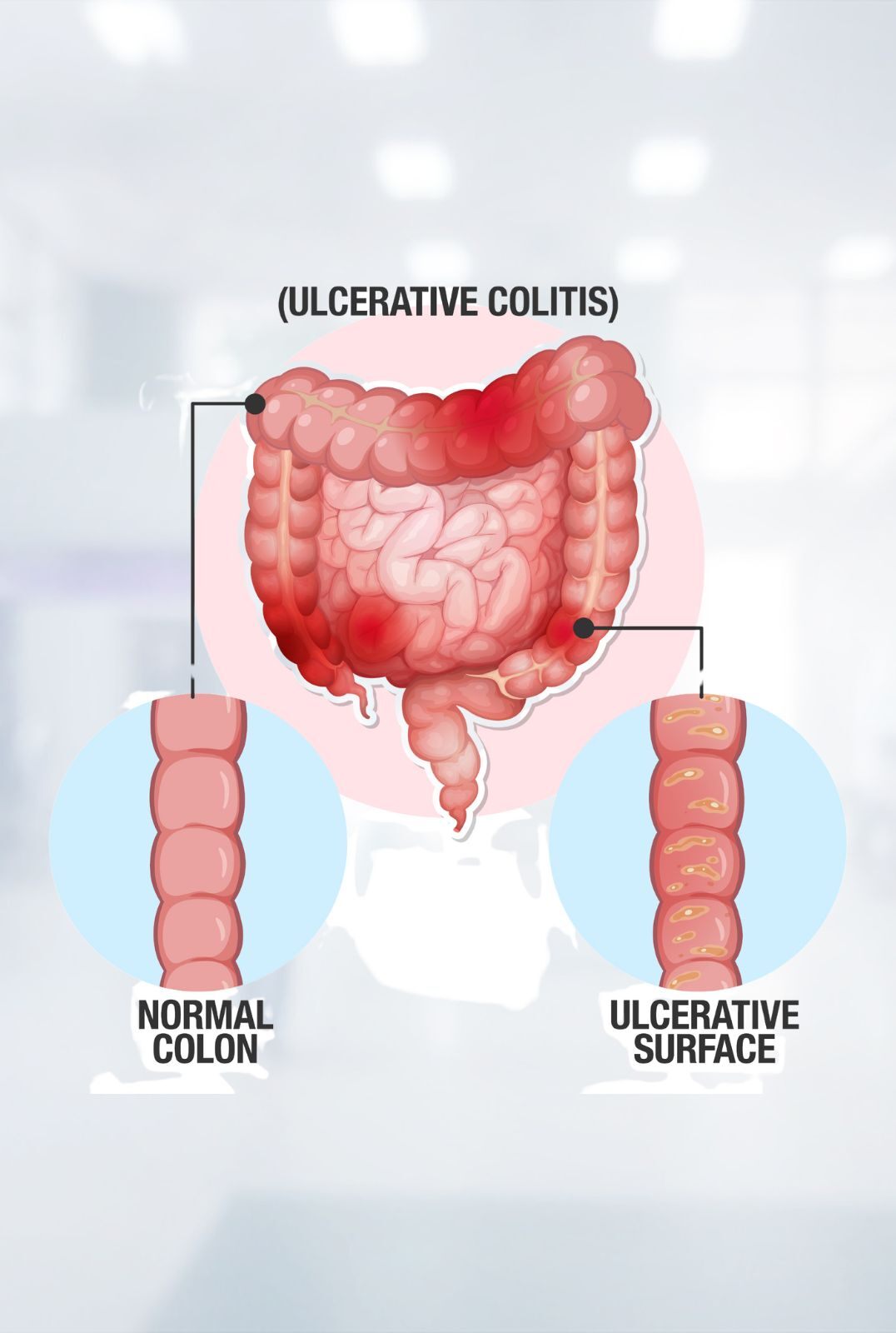Ayurveda Treatment for IBS
( Irritable bowel syndrome )
Niroga Ayurveda Healing ( Ayurveda Chikitsa / Treatments )
What is Irritable Bowel Syndrome?


Why Choose Ayurveda for Irritable Bowel Syndrome?
Ayurveda, an ancient holistic healing system, offers effective and natural remedies for managing IBS. Unlike conventional treatments, Ayurveda focuses on balancing the body’s doshas (Vata, Pitta, Kapha) to treat the root cause of the disorder.
Percentage of Statistics: Hyderabad, India, and Globally
- Global Statistics: Approximately 10-15% of the world’s population suffers from IBS.
- India Statistics: Around 20% of Indians experience IBS symptoms, with a significant number residing in metropolitan areas like Hyderabad.
Who is Frequently Affected by IBS?
IBS can affect anyone, but it is more common in:
- Individuals aged 20-40
- Women, who are twice as likely to have IBS compared to men
- People with a family history of IBS
Causes and Aetiology of IBS
- Dietary Factors: Consumption of spicy, oily, or junk food
- Stress and Anxiety: High stress levels can trigger IBS symptoms
- Gut Infections: Past infections may lead to IBS
- Genetics: Family history of IBS
- Lifestyle: Irregular eating habits and lack of exercise


Signs and Symptoms of IBS
- Abdominal pain and cramping
- Bloating and gas
- Diarrhea or constipation
- Mucus in the stool
- Fatigue and difficulty sleeping
Diagnosis of IBS
IBS is diagnosed based on symptoms and medical history. Doctors may perform:
- Physical examinations
- Blood tests
- Stool tests
- Colonoscopy, if needed
Types of IBS
- IBS-C: Predominantly constipation
- IBS-D: Predominantly diarrhea
- IBS-M: Mixed (alternating constipation and diarrhea)
- IBS-U: Unsubtyped (symptoms do not fit into the other categories)


Prevention and Home Remedies for IBS
In addition to professional treatments, certain home remedies can help manage IBS symptoms:
- Ginger Tea: Drinking ginger tea can help in reducing inflammation and improving digestion.
- Aloe Vera Juice: Consuming aloe vera juice can soothe the digestive tract and reduce symptoms like constipation and bloating.
- Peppermint Oil: Peppermint oil capsules can help in relieving abdominal pain and discomfort.
- Fennel Seeds: Chewing fennel seeds after meals can aid digestion and reduce bloating.
Detailed Irritable Bowel Syndrome Ayurvedic Treatment Options
At Sai Ayush Ayurveda Hospitals, we provide a holistic approach to treating Irritable Bowel Syndrome (IBS), focusing on balancing the body’s doshas to address the root cause of the disorder. Here are the detailed treatment options available:
Herbal Remedies for IBS
Ayurvedic herbal remedies play a crucial role in managing IBS. These herbs help improve digestion, reduce inflammation, and balance the doshas. Some of the key herbs used include:
- Triphala: A combination of three fruits (Amalaki, Bibhitaki, and Haritaki), Triphala aids in digestion and detoxification.
- Bilva (Bael): Helps in alleviating symptoms like diarrhea and abdominal pain.
- Amlaki (Indian Gooseberry): Rich in Vitamin C, it improves digestion and boosts immunity.
- Ashwagandha: Reduces stress and promotes overall well-being.
- Licorice Root (Yashtimadhu): Soothes the digestive tract and reduces inflammation.
Panchakarma Therapy
Panchakarma is a comprehensive detoxification process that cleanses the body and balances the doshas. It includes the following therapies:
- Virechana (Purgation Therapy): This therapy involves the use of purgatives to cleanse the intestines and eliminate toxins. It is particularly beneficial for balancing Pitta dosha.
- Basti (Medicated Enema): Basti is effective in treating Vata-related disorders. Medicated oils and decoctions are administered through the rectum to cleanse the colon and alleviate symptoms like constipation and bloating.
- Shirodhara: A continuous stream of medicated oil is poured on the forehead to calm the mind and reduce stress, which is a significant trigger for IBS.
- Abhyanga (Oil Massage): A full-body massage with warm herbal oils that helps relax the body, improve circulation, and promote detoxification.
Diet and Lifestyle Modifications
Ayurveda emphasizes the importance of a balanced diet and healthy lifestyle in managing IBS. At Sai Ayush Ayurveda Hospitals, we offer personalized dietary plans and lifestyle recommendations, including:
- Customized Diet Plans: Based on the individual’s dosha, dietary recommendations include avoiding trigger foods such as spicy, oily, and processed foods. Emphasis is placed on consuming fresh, easily digestible, and fiber-rich foods.
- Regular Meal Times: Eating at regular intervals to maintain digestive health.
- Hydration: Drinking plenty of water and herbal teas to aid digestion and detoxification.
- Avoiding Cold Foods: Consuming warm, cooked foods instead of raw or cold foods to ease digestion.
Yoga and Meditation for IBS
Stress management is crucial in managing IBS, and yoga and meditation play a vital role in reducing stress and promoting digestive health. At Sai Ayush Ayurveda Hospitals, we incorporate specific yoga poses and meditation techniques, such as:
- Pavanamuktasana (Wind-Relieving Pose): Helps in relieving gas and bloating.
- Ardha Matsyendrasana (Half Lord of the Fishes Pose): Improves digestion and stimulates the digestive organs.
- Paschimottanasana (Seated Forward Bend): Relieves stress and enhances digestion.
- Pranayama (Breathing Exercises): Techniques like Anulom Vilom (Alternate Nostril Breathing) and Bhramari (Bee Breathing) to calm the mind and reduce stress.
FAQs
Frequently Asked Questions
Q:What is Irritable Bowel Syndrome (IBS)?
A:IBS is a chronic gastrointestinal disorder causing abdominal pain, bloating, and altered bowel habits, including diarrhea and constipation.
Q:How does Ayurveda treat IBS?
A:Ayurveda treats IBS by balancing the body’s doshas with herbal remedies, dietary adjustments, Panchakarma therapy, and stress management techniques like yoga and meditation.
Q:Who is more likely to be affected by IBS?
A:IBS is more common in individuals aged 20-40, particularly women, and those with a family history of the disorder.
Q:What are the common symptoms of IBS?
A:Common symptoms include abdominal pain, bloating, diarrhea or constipation, and mucus in the stool.
Q:Can lifestyle changes help manage IBS?
A:Yes, regular exercise, a balanced diet, stress management, and staying hydrated can significantly help manage IBS symptoms.
Fill out this form for booking online.
Appointment
Book An Appointment
Make sure to note down the appointment date, time, and location provided by the clinic. Set reminders on your calendar or set an alarm to ensure you are punctual and do not miss your appointment.
Customer Service
+91 84668 82266
WhatsApp Now
+91 84668 82266
Subscribe Now
SaiAyush Ayurveda

